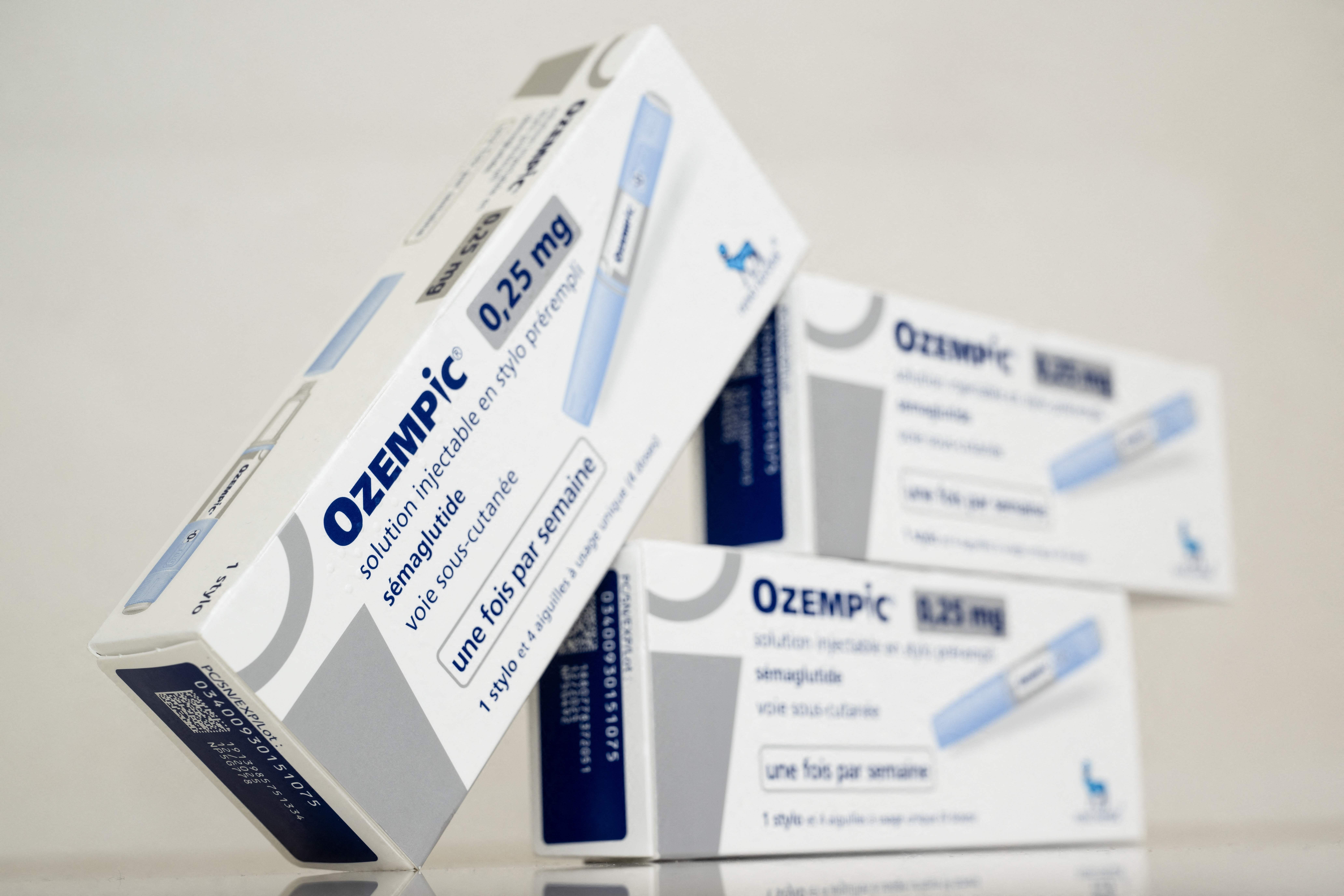There may be more leftovers this Thanksgiving as about one in eight American adults say they are taking Ozempic or a similar drug, known to curb appetites.
Morgan Williams, 29-year-old Nebraska mom, usually goes for the green bean casserole on Turkey Day. But since she began taking a GLP-1 drug to manage her Polycystic Ovary Syndrome, she noticed her appetite wasn’t what it used to be, she told USA Today.
"I don't want to hurt anyone's feelings," Williams, 29, says. "So I will just grab the dish and not eat it. It will still be on my plate when I throw everything away."
Since she began taking the medication in April, she has lost 70 pounds, she told the outlet. Her symptoms have subsided and a side effect has emerged.
"I get full a lot faster, and big holiday portions feel kind of overwhelming now," Williams said. "I used to go back for seconds, but now I’m satisfied after just a few bites, so the holiday season will definitely be different than past years."
Williams is far from the only one to face some relatives for the first time since she began taking the GLP-1 medication.
An estimated 12 percent of U.S. adults are currently taking a GLP-1 drug, such as Ozempic or Wegovy, a KFF survey last week found. Both men and women have more than doubled their use of the medication in the past year, according to the Gallup National Health and Well-Being Index last month.
The FDA approved Wegovy as a weight loss medication and Ozempic to treat type 2 diabetes. Although prescribed for different purposes, both are GLP-1 agonist medications, which mimic the natural hormone that make people feel full, according to Cleveland Clinic.
"There can still be a bit of a stigma around GLP-1 medications," Williams told USA Today. "I’m proud of the progress I’ve made, but there’s definitely some anxiety that comes with knowing people might have opinions or make comments."

Sabina Hemmi, founder of GLP Winner, a platform that provides information about GLP-1 medications, suggested that family members should avoid making any comments if a loved one doesn’t seem as hungry as they once were.
Food "is its own cultural language, so when you have a medication that disrupts people's relationship with food, it can feel kind of sad," Hemmi told USA Today.
"Thanksgiving can be stressful for anyone who has a family that encourages overeating or food as a way of showing love, adding to the pressure. If someone sits down with a smaller plate serving, it's probably not helpful to make a comment."
"Holidays are still special," she added. "Those meals just might look a little different."
Florida retiree detained in Saudi Arabia returns home following Prince's visit to White House
Layoffs are piling up, raising worker anxiety. Here are some companies that have cut jobs recently
The real reason turkey is the main dish served on Thanksgiving
Record 82 million Americans expected to travel for Thanksgiving
Fugees’ Pras Michel sentenced to 14 years in prison for conspiracy
Democrats targeted in Trump’s death threat disappointed over GOP reaction: Live







